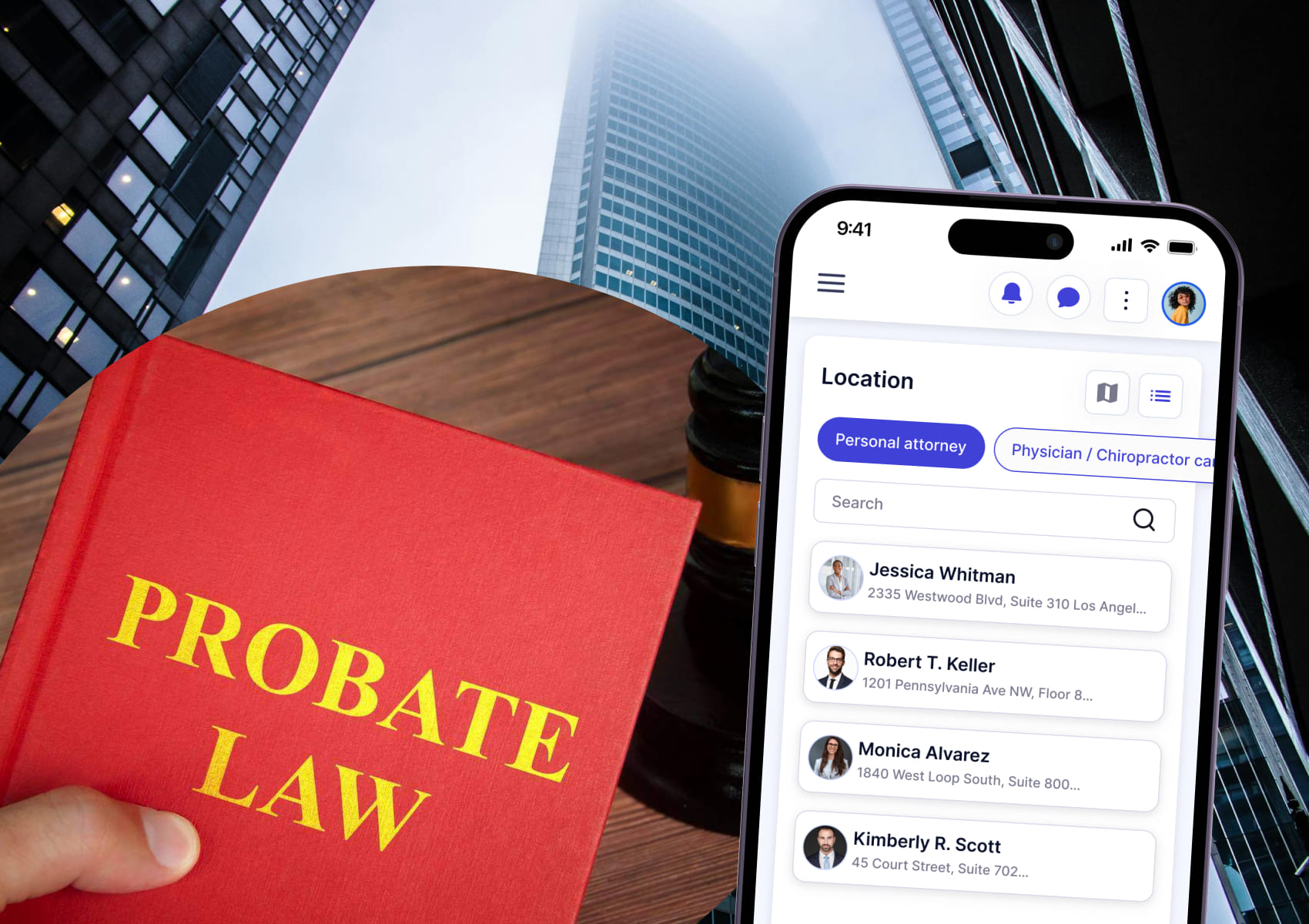How Much Does a Divorce Lawyer Cost in 2025?

Let’s be honest: no one plans for divorce. But when it happens, the last thing you want is more confusion — especially when it comes to legal fees. But how much does it actually cost to hire a divorce lawyer?
Well, it’s not as simple as you might hope. Some people walk away spending under a few thousand dollars. Others? They could be looking at ten, twenty, or even thirty grand — and that’s not an exaggeration. It all depends on how complicated your case is, and how willing both sides are to cooperate.
Let’s see all the possible factors and understand what you should expect. This article is prepared by OwchBuddy’s professional divorce lawyers with multiple successful cases. Read on for more!
It Starts With How the Lawyer Charges
Each lawyer charges their own rates based on various factors.
Hourly-Rate Model
Nearly every divorce attorney tracks time in six-minute increments. You pay for each task: reviewing financial statements, drafting motions, negotiating by email, prepping exhibits, or waiting in court. Nationwide, rates typically range from $200 to $500 per hour. Expect the midpoint (about $300–$350) in mid-sized markets. Major metros and senior partners push the upper end of the spectrum.
Flat-Fee Options
When both spouses have already agreed on every issue, some firms quote a single, all-inclusive price. Common examples:
| Service Scope | Typical Flat Fee |
| Basic uncontested divorce (no children, no real property) | $1,000 – $1,800 |
| Document preparation only, no court appearance | $500 – $1,200 |
| Full representation in a low-conflict, agreed divorce | $2,000 – $3,500 |
These figures cover a defined workload—file the petition, draft the settlement, obtain the decree—with limited attorney hours baked in.
Any spike in complexity (custody disputes, contested asset valuation, disagreements over spousal or child support) triggers a shift back to hourly billing. Once conflict arises, the time required becomes unpredictable, and a fixed price no longer protects the lawyer (or you) from runaway workloads.
Ask upfront which model fits your situation, what’s included, and when additional costs might kick in. A clear fee agreement is the first step toward controlling expenses in an already stressful process.
So What’s the Real-World Total?
It depends on how your case plays out. But here’s a rough idea of what most people spend:
- Uncontested divorce (minimal issues, full agreement): $1,000 to $3,000
- Moderate conflict (some negotiation needed): $4,000 to $10,000
- High-conflict divorce (court hearings, custody battles, assets): $15,000 to $30,000+
Yes, that’s a wide range – and yes, you absolutely can stay on the lower end if things remain civil and your lawyer is efficient.
What Are You Actually Paying For?
Divorce expenses track three variables: how much conflict exists, how complex your finances are, and how many hours your lawyer must spend in discovery or court.
| Conflict Level | Typical Cost Range | What Drives the Price |
| Fully Uncontested—no kids, no real property, all paperwork pre-agreed | $1,000 – $3,000 | Low attorney hours, limited court filings, no discovery, one final hearing |
| Moderate Conflict—some negotiation on custody or asset division | $4,000 – $10,000 | Drafting parenting plans, exchanging financial disclosures, 1–2 mediation sessions |
| High Conflict—disputes over custody, business valuation, or alimony | $15,000 – $30,000+ | Depositions, expert witnesses (forensic accountants, child-custody evaluators), multiple hearings, trial prep |
Filing fees ($200–$450), process-server costs ($75–$150), and mediation fees ($150–$400 per hour) are paid on top of your lawyer’s bill. Keeping negotiations civil, providing paperwork promptly, and using one neutral expert instead of dueling specialists are the fastest ways to stay on the lower end of each tier.
Where Do Your Legal Fees Go?
A divorce lawyer’s invoice covers much more than standing beside you in court. Behind the scenes, every line item buys one of the following services:
- Strategic Case Planning:
- Evaluating goals, mapping possible settlement ranges, and creating a litigation timeline that protects cash flow and children’s routines.
- Paperwork & Court Filings:
- Drafting the petition, summons, financial affidavits, and parenting plans; ensuring every document meets state-specific formatting and service rules.
- Evidence Gathering (Discovery):
- Issuing subpoenas, reviewing bank statements, valuing pensions and stock options, and compiling the disclosure packet judges use to divide marital assets.
- Negotiation & Settlement Talks:
- Trading proposals with opposing counsel, attending mediation, and converting handshake deals into enforceable consent decrees that avoid trial costs.
- Client Education & Risk Management:
- Translating statutes into plain English, flagging hidden tax consequences, and preventing off-the-record agreements that can unravel years later.
- Courtroom Representation:
- Arguing motions, questioning witnesses, presenting exhibits, and—if negotiations fail—trying the case before a judge or jury.
- Post-Judgment Clean-Up:
- Recording quit-claim deeds, drafting QDROs for retirement accounts, and enforcing payment orders if an ex-spouse falls behind.
A good attorney acts as strategist, document engineer, negotiator, translator, and litigator—all roles aimed at securing a fair settlement while sparing you needless stress, delay, and expense.
Tips to Keep Costs From Spiraling
You don’t need a six-figure salary to afford a good divorce lawyer – you just need a plan. Here’s what works:
Plan Ahead, Not Just Pay Ahead
You don’t need a six-figure income to secure quality representation; you need a clear cost-control strategy. Follow these proven tactics to keep legal bills predictable and proportional to the stakes.
Be Totally Organized
Walk into the first meeting with tax returns, pay stubs, bank and retirement statements, debt ledgers, and a current budget spreadsheet. Every minute your attorney or paralegal spends chasing paperwork is billable time you could have saved with a single, well-labeled folder.
Pick Your Battles Wisely
Emotional skirmishes over minor household items drain wallets faster than they settle scores. Concentrate your negotiating power on custody schedules, long-term financial stability, and personal peace of mind. Let the small stuff—like who keeps the air fryer—go whenever you can.
Simplify Communication
Attorneys log every phone call, voicemail, and “quick-question” email. Instead, keep a running list of concerns, then schedule a single, focused check-in. Bundling issues into one 15-minute conversation often costs half as much as four scattered five-minute exchanges.
Leverage Mediation Early
Mediation fees are typically a fraction of courtroom costs and can resolve sticking points in a day rather than months. Ask your lawyer whether voluntary mediation or a settlement conference makes sense before discovery spirals into depositions and expert-witness expenses.
Demand Fee Transparency Up Front
Before signing a retainer, insist on a written fee agreement that spells out hourly rates, flat-fee tasks, billing increments, and expense policies. Clear rules on when—and why—additional costs arise eliminate surprises and give you leverage to evaluate efficiency throughout the case.
Do You Even Need a Lawyer?
Technically? No. Legally, you can represent yourself in a divorce — and some people do. But unless your situation is extremely simple, going solo can backfire.
Here’s when hiring a lawyer is smart — or even essential:
- You and your spouse don’t agree on custody, money, or property;
- You’re not sure what you’re legally entitled to;
- Your ex has a lawyer;
- There’s a history of emotional abuse, manipulation, or imbalance;
- You have kids, shared debt, or complicated assets.
Even if you’re just using a lawyer for limited help, like reviewing documents, it can save you from major headaches (and costly mistakes) later on.
What to Ask Before You Hire Anyone
A good lawyer won’t dodge questions — they’ll welcome them. Here are a few worth asking:
- What’s your hourly rate or flat fee?
- Do you require a retainer? How much?
- What does that retainer actually cover?
- What’s your billing process like? Monthly? As you go?
- Will I work with you directly, or someone else at the firm?
- What do you see as the biggest risks or costs in my case?
If the lawyer rushes through answers or sounds vague, it might be a sign to keep looking.
How OwchBuddy Helps You Find the Right Divorce Lawyer
We know that when you’re going through divorce, the last thing you need is another source of stress. That’s why OwchBuddy is here to connect you with lawyers who are not only experienced – but fair, upfront, and clear about their pricing.
When you use OwchBuddy, you get:
- A free consultation with a trusted divorce attorney;
- Transparent fee structures (no surprises);
- Legal help that fits your budget and your situation;
- A support team that listens — and actually cares.
Whether your split is calm, chaotic, or somewhere in between — we’ll help you move forward with clarity and control. Talk to a divorce lawyer now and get honest answers, clear guidance, and legal protection that puts you first.
Thank you for your comment
It will be published after moderation

 OwchBuddy
OwchBuddy







Comments 0